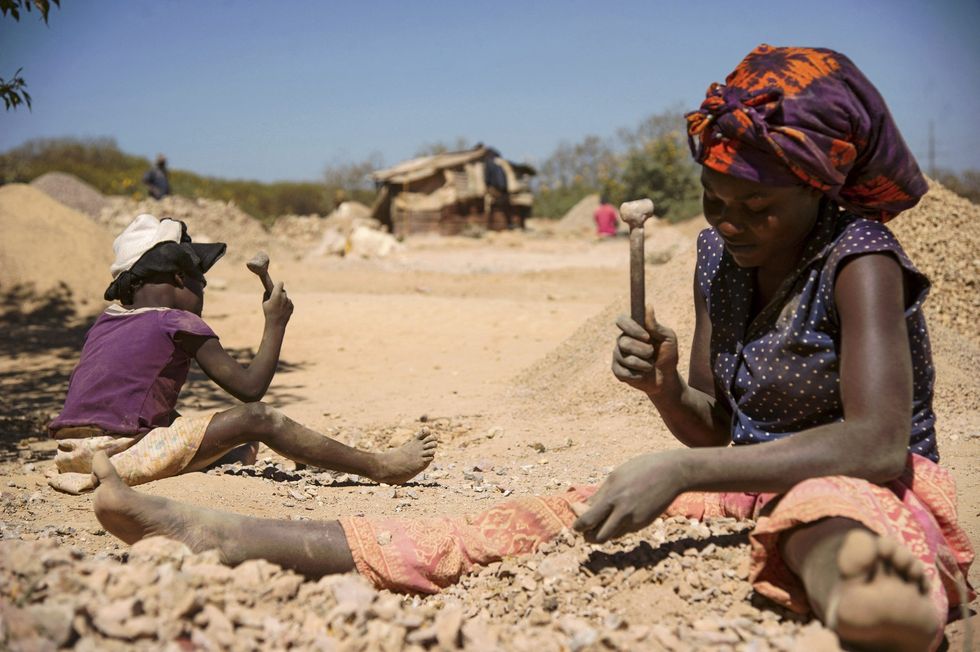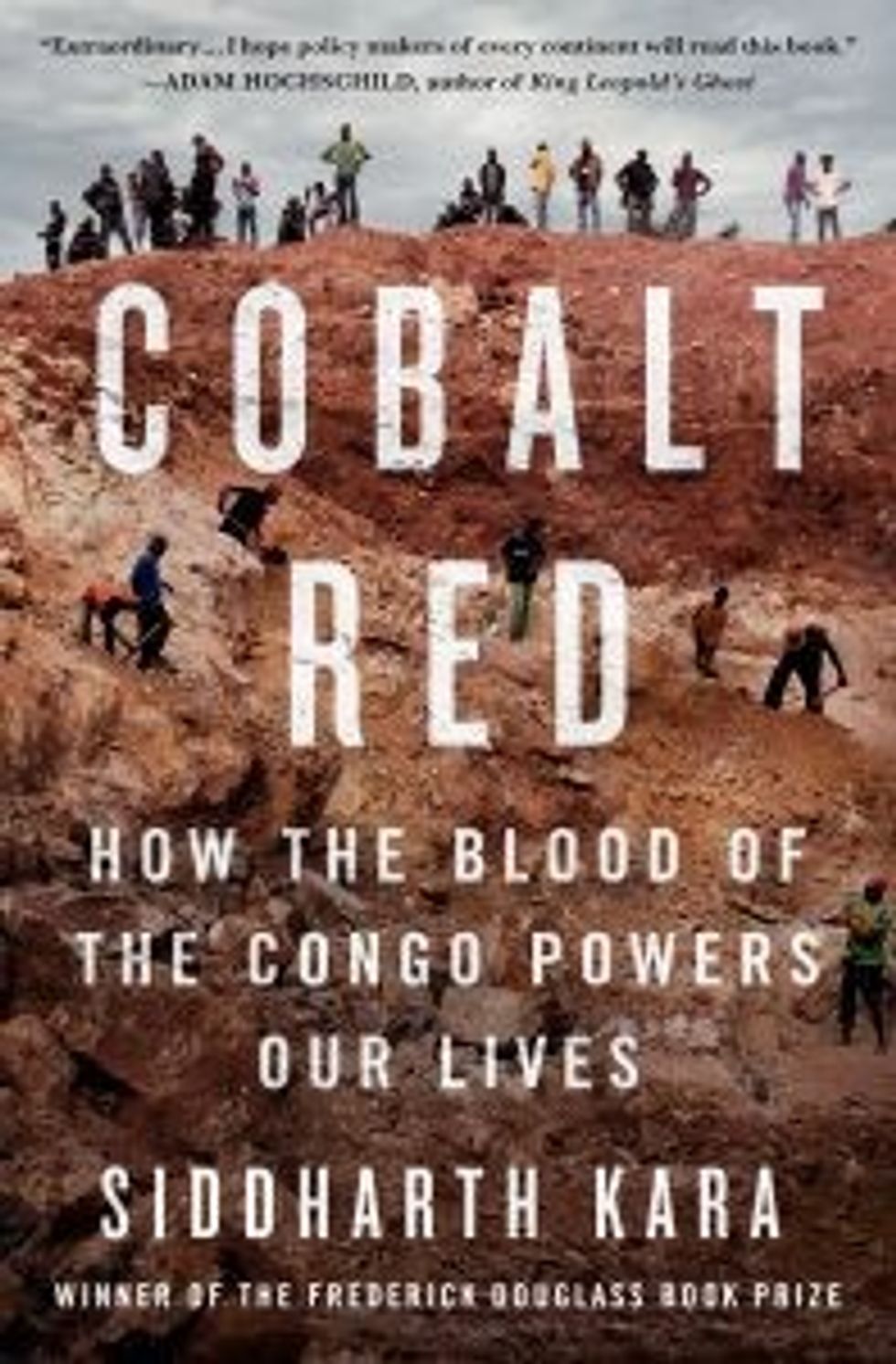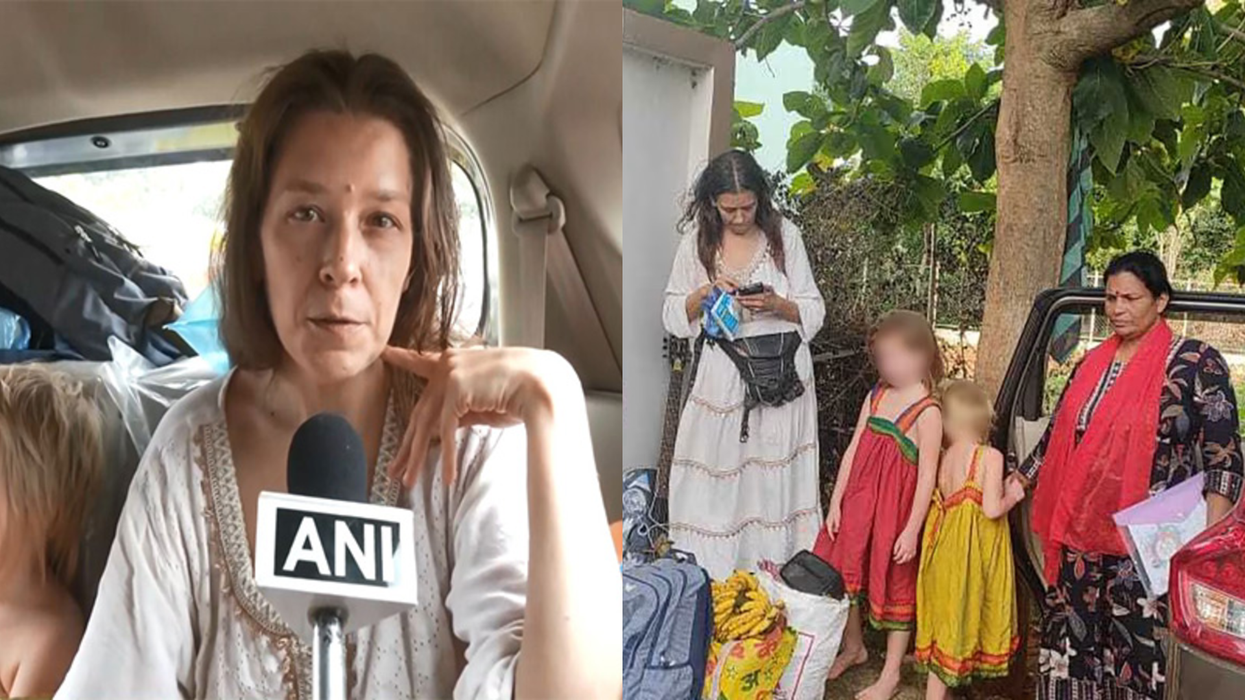THE just-announced shortlist for the Financial Times and Schroders Business Book of the Year 2023 includes Cobalt Red: How the Blood of the Congo Powers Our Lives by Indian-origin author Siddharth Kara.
According to the FT, “Cobalt Red is the searing, first-ever exposé of the immense toll taken on the people and environment of the Democratic Republic of the Congo [DRC] by cobalt mining, as told through the testimonies of the Congolese people themselves.”

Kara, currently based at Nottingham University as a British Academy global professor, was “born in Knoxville, Tennessee, to Indian parents of Hindu and Parsi background. He grew up between Memphis, Tennessee, where he attended Memphis University School and Mumbai, where he spent most of his summers.”
So far as cobalt is concerned, it comes mainly from the DRC, it has been pointed out to Eastern Eye on numerous occasions by Lord Dolar Popat, who is the British prime minister’s trade envoy to the African country as well as to Uganda and Rwanda.
The FT said: “Activist and researcher Siddharth Kara has travelled deep into cobalt territory to document the testimonies of the people living, working and dying for cobalt. To uncover the truth about brutal mining practices, Kara investigated militia-controlled mining areas, traced the supply chain of child-mined cobalt from toxic pits to consumerfacing tech giants, and gathered shocking testimonies of people who endure immense suffering and even die mining cobalt.”
It added: “Cobalt is an essential component to every lithium-ion rechargeable battery made today, the batteries that power our smartphones, tablets, laptops and electric vehicles. Roughly 75 per cent of the world’s supply of cobalt is mined in the Congo, often by peasants and children in subhuman conditions.
“Billions of people in the world cannot conduct their daily lives without participating in a human rights and environmental catastrophe in the Congo. In this stark and crucial book, Kara argues that we must all care about what is happening in the Congo – because we are all implicated.”
Cobalt Red has been on the bestseller list of the New York Times, which called it “harrowing... a righteous quest to expose injustice”. It was called “timely, important, compelling,” by the Lost Angeles Times, while the Wall Street Journal said it was “powerful... heart-wrenching... compelling”.

Kara has also written a trilogy on modern slavery. The first one, Sex Trafficking: Inside the Business of Modern Slavery (2009), was adapted into the 2017 Hollywood drama, Trafficked.
A feature film inspired by Cobalt Red is currently in pre-production.
The five other books on the shortlist include: Elon Musk by Walter Isaacson; Material World: A Substantial Story of Our Past and Future by Ed Conway; Right Kind of Wrong: Why Learning to Fail Can Teach Us to Thrive by Amy Edmondson; How Big Things Get Done: The Surprising Factors Behind Every Successful Project, from Home Renovations to Space Exploration by Bent Flyvbjerg and Dan Gardner; and The Coming Wave: AI, Power and the TwentyFirst Century’s Greatest Dilemma by Mustafa Suleyman with Michael Bhaskar.
The winner of the £30,000 prize will be announced on December 4. The five other authors will each receive £10,000.
The FT editor, Roula Khalaf, said: “This year’s shortlist covers some of the biggest issues of our time – from the advance of artificial intelligence to the relentless pressure on natural resources – in books that are exceptionally well researched and reported. Selecting finalists from a strong longlist was hard, but the judges have picked six exciting, engaging and important titles that together provide a highly readable guide to the future of business.”
Peter Harrison, the Schroders Group chief executive, added: “I am delighted that for this first year of our partnership with the FT, we have chosen a shortlist that sheds light on the ways in which business intersects with global economics and politics.”
The nine-strong judging panel includes Baroness Shriti Vadera, chair, Prudential Plc and the Royal Shakespeare Company.
Kara has spoken of the crucial importance of cobalt: “You cannot conduct your daily life without a mineral called cobalt.
“Cobalt is a vital component to almost every lithium-ion rechargeable battery made today. That means cobalt is used in almost every smartphone, tablet, laptop, and electric vehicle that is used by billions of people around the world.
“Cobalt allows the batteries in these devices and cars to hold maximum charge while retaining thermal stability. Without cobalt, we would all be plugging in our gadgets and cars much more often, and eventually, those batteries might catch fire. Electric vehicles, in particular, are driving the future demand for cobalt, as the battery packs in each EV (electric vehicle) require up to 10 kilogrammes of refined cobalt. As the world transitions from fossil fuels towards clean energy, demand for cobalt is expected to soar by more than 300 per cent by 2030.”
He stressed: “Cobalt mining in the Congo is a human rights and environmental catastrophe.”
And he revealed: “There are hundreds of thousands of people in the Congo who dig for cobalt by hand, with shovels, pickaxes and rebars. They are called artisanal miners, although this quaint term belies the miserable conditions under which they toil.
“Artisanal miners are responsible for 30 per cent or more of the Congo’s total cobalt production. These men, women, and children as young as six, dig for cobalt in highly hazardous conditions, suffering toxic contamination from cobalt dust, injuries from pit wall collapses and worst of all, they are buried alive in tunnel collapses.
“There are 10,000 to 15,000 tunnels dug by hand in the region, some of them up to 60 metres deep as artisanal miners delve for higher grade sources of cobalt so they can try to earn more money.
“None of these tunnels have supports, and based on the many months I have spent on the ground in the Congo, I can assure you that one of these tunnels collapses every week, burying alive everyone inside, including children.”
He said: “Companies at the top of the chain perpetuate fictions about conditions at the bottom. The companies that sell us our rechargeable gadgets and electric cars all claim to have zero tolerance policies on child labour. They claim the human rights of all who work in their supply chains are protected, all the way down the mining level. They will even suggest that their particular supply chains do not contain cobalt mined by peasants and children,
and that the mines in their supply chains operate sustainably.
“Nothing could be further from the truth.”
The author added: “In Cobalt Red, I take you on a journey deep into the cobalt provinces to uncover the truth about the appalling conditions of cobalt mining, as told through the voices of the Congolese people who live, work and die mining our cobalt.
“You learn, for instance, that every ounce of cobalt scrounged out of the ground by artisanal miners is purchased by industrial mining companies and mixed with their production. You also learn that artisanal miners are encouraged to dig on almost every industrial mine in the Congo…and why not? It is a way of boosting production at virtually no expense.
“The fictions promulgated atop of the cobalt chain are dispelled one by one."



















